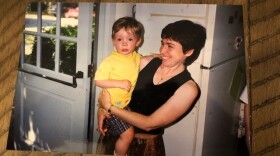
Tara Boyle
Tara Boyle is the supervising producer of NPR's Hidden Brain. In this role, Boyle oversees the production of both the Hidden Brain radio show and podcast, providing editorial guidance and support to host Shankar Vedantam and the shows' producers. Boyle also coordinates Shankar's Hidden Brain segments on Morning Edition and other NPR shows, and oversees collaborations with partners both internal and external to NPR. Previously, Boyle spent a decade at WAMU, the NPR station in Washington, D.C. She has reported for The Boston Globe, and began her career in public radio at WBUR in Boston.
-
Physician Abraham Verghese reflects on a defining moment in 1985, when one of his terminally ill patients reminded him to follow his dreams.
-
Nicole George-O'Brien was driving over a bridge when she experienced a seizure. She woke up in the hospital, worried that she'd hurt someone, but found out a stranger helped her and others that day.
-
When Vanessa Foster was stranded in the middle of Alaska, a stranger with bright blue eyes stopped to give her a ride, and changed her life.
-
When Kate Baker's toddler experienced a seizure during a transatlantic flight, she nearly shut down. But she received comfort from an unexpected group of passengers.
-
Judy, Lyn and Donna Ulrich were driving to a volleyball game when their Ford Pinto was hit from behind by a Chevy van. The Pinto caught fire, and the three teenagers were burned to death. This week on Hidden Brain, we talk to a former Ford insider who could have voted to recall the Pinto years before the Ulrich girls were killed — but didn't. And we ask, is it possible to fairly evaluate our past actions when we know how things turned out?
-
In the past few weeks, the nation has been gripped by protests against police brutality toward black and brown Americans. The enormous number of demonstrators may be new, but the biases they're protesting are not. In 2017, we looked at research on an alleged form of bias in the justice system. This week, we revisit that story, and explore how public perceptions of rap music may have played a role in the prosecution of a man named Olutosin Oduwole.
-
President Trump said this week that a few "bad apples" were to blame for police killings of black people. But research suggests that something more complicated is at play — a force that affects everyone in the culture, not just police officers. In this bonus episode, we revisit our 2017 look at implicit bias and how a culture of racism can infect us all.
-
In recent months, many of us have looked back with longing at our lives before COVID-19. For many of us, that world was one of bustle and activity — marked by scenes of packed restaurants, crowded subway cars, and chaotic playgrounds. In this audio essay, Shankar discusses our wistfulness for the world before the pandemic, and why such nostalgia can actually help to orient us toward the future.
-
We don't always behave the way economic models say we will. We don't save enough for retirement. We give money to charity. This week, why we act in ways that go against our "rational" self-interest.
-
On this week's radio show, we trace the history of fake news. Plus, in a time when accurate information is so important, we ask who ultimately bears the cost when no one wants to pay for local news.










